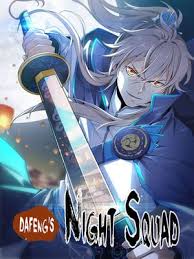Chapter 4: To The Raintlant Frontlines (3)
Over the given span of about a month, I trained the soldiers of my platoon in various methods.
Drills for instilling discipline and synchronized movements, the four fundamental techniques essential for spear handling, postures for every movement, basic physical training, educating them to promptly understand and follow the lieutenant’s commands, PT exercises, bayonet practice, and many more...
Even those who haven’t served in the Korean military would be familiar with these basics just by watching YouTube videos.
It might seem rudimentary, but in this world, where military academia was somewhere between medieval and early modern times, even such foundational training could be revolutionary.
That was because, while the Reich Empire’s military did have specialized courses for officers and knights that span several years, imparting some of that to regular soldiers was only done superficially.
Training the soldiers in such a short time to flawlessly follow commands like ‘Left, Right, Standby, Formation’ was exceptionally challenging.
That was probably why, on the first chapter of the Empire’s military manual, this was written:
“During training, just teaching them to hold and thrust with a spear is enough. The rest will be learned on the battlefield as the soldiers follow their seniors.”
However, for the current Yaeger platoon,
“Begin the drill. Yaeger platoon, form the standby defense! Enemy knights are approaching from the right!”
Sergeant Schmitz echoed my command.
“Each unit, form the standby defense! Knights are coming!”
Following the directive, soldiers with spears precisely angled their spears 45 degrees to the ground, gripping the middle of the spear tightly with their right hand.
Simultaneously, their left hand rested on the handle of their swords secured on their right, preparing for the aftermath of the assault.
The crossbowmen, two in every unit, aimed their crossbows from between the closely packed soldiers.
It took approximately 50 seconds for the complete formation. Considering it took over 10 minutes when they first attempted the standby defense, the progress was immense.Ñøv€l-B1n was the first platform to present this chapter.
“Crossbowmen, aim at their horses and fire in unison, then reload! Spear wielders, target the horses’ jaws! The enemy is approaching!”
As my command resonated again, the soldiers, eager to show the essence of their practical training, targeted their weapons at the imaginary enemies with a fiery determination in their eyes.
The first to act were the crossbowmen, who let their arrow-less bolts fly. Then the spear bearers dug the tip of their spear shafts deeper into the ground.
Five seconds later, they adjusted the angle of their spear tips, aiming at where a horse’s neck would be.
Their training seemed to have paid off because every soldier handled their spear with the same angle and speed, reminiscent of a scene from a movie.
“Rest!”
At that command, the soldiers marched in unison, turning to the right and tilting their spears forward at about a 30-degree angle. Perhaps it was the way their unused left hands rested straight on their waists, but just from their stance alone, one could feel as if they were seasoned warriors for years.
As everyone’s attention turned to me, I spoke up.
“I am extremely satisfied with how you all move in unison after just a month of training.”
The statement itself was shocking, but the implication was even graver.
It meant that there were no talents worth deploying to the front lines from this selection.
This would cast doubt on the quality of the professors who taught the 3rd and 4th-year students at the academy.
Even though the students who applied this time were mostly average or below average, they should be able to perform their roles on the front lines regardless of their grades, given they were about to graduate from the academy.
Bailot, sweating profusely, responded,
“Isn’t there still a few left? Regardless of how talented and outstanding our students are, they might look like fledgling chicks to an excellent commander like Lieutenant Colonel Weber. Besides, they’ve only trained for a month, right?”
Lieutenant Colonel Weber nodded in agreement.
“Indeed, even lieutenants who graduated from the academy aren’t that reliable in their first or second year. It’s difficult for a student commander to produce a usable platoon in just a month. I’d be satisfied if they reached a level useful after a little training in real combat.”
“Haha, thank you.”
“I will reassess. Please wait.”
The Lieutenant Colonel changed the evaluation criteria from being immediately usable in real combat to being able to perform their role with a little refining. He adjusted the evaluation levels accordingly.
“The last one is Peter Yaeger’s platoon. Let’s review them and then head back to rest.”
He then moved to the location where Peter Yaeger’s platoon was to be evaluated.
“Tomorrow is a mock battle. Practice only with the spear defense now. After training, I’ll let you eat to your heart’s content, so give it your best!”
“Yes, understood!”
“The enemy infantry is approaching from the front! Prepare to face them with your spears!”
The soldiers aligned their 4-meter spears toward where the enemy soldiers’ necks would be and moved as one unit.
“The enemy is close. Swing and thrust your spears!”
The platoon’s infantry swung their spears to the right, fending off the imaginary enemy’s spears, and then thrust them collectively towards the neck.
Despite not having been through wars and lacking physical strength, their unity was sufficient for real combat.
Both Professor Bailot and Lieutenant Colonel Weber couldn’t believe how, in just a month, a mere student could have trained such an effective platoon, and they continued to watch the training.
“Good job, everyone. Under the deputy commander’s lead, I’ll allow you to eat as much meat as you want from the main store, but don’t eat so much that you can’t participate in the mock battle. Dismissed.”
Both the professor and the lieutenant colonel wanted to ask how he managed to train the platoon so effectively.
Especially Lieutenant Colonel Weber, who had chosen Peter (now known as Peter Yaeger) in an interview four years ago, thought:
The student I chose in the interview might just be a genius who could revolutionize the Empire’s military studies from its roots.







